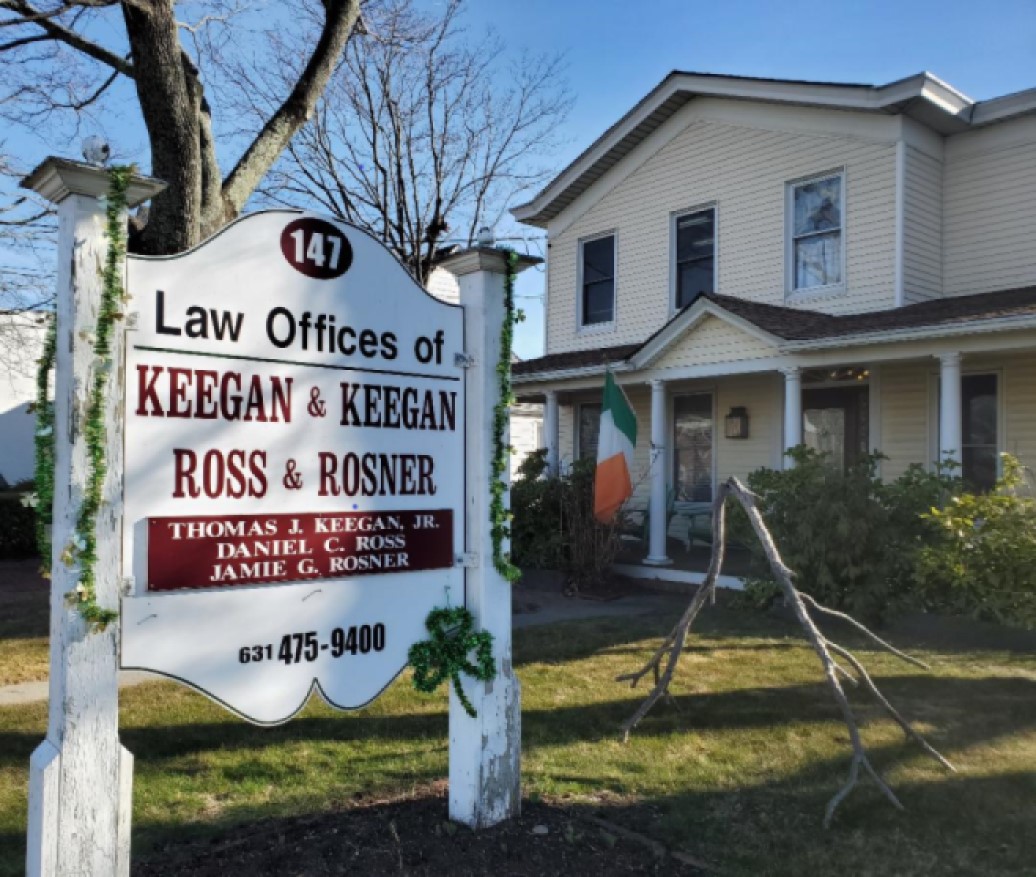Important developments in New York’s Serious Injury Threshold
(1) Know the Insurance Law § 5102(d) Qualifiers
Article 51 of the Insurance Law provides that a person injured in a car accident must establish that he/she has incurred a basic economic loss exceeding $50,000 or must prove that he/she has suffered “serious injury” – Insurance Law § 5104(a), (b)
Filing a Complaint with the DMV Against an Automobile Repair Shop
The New York State DMV has published an article discussing consumer rights when dealing with automobile repair shops. The article discusses rights provided by the New York State Repair Shop Act. It begins with a few tips on selecting a reputable repair shop.
- Deal only with a registered shop. Make sure there’s a green and white “Registered State of New York Motor Vehicle Repair Shop” sign
 outside the shop and a valid New York State Department of Motor Vehicles (DMV) registration certificate inside.
outside the shop and a valid New York State Department of Motor Vehicles (DMV) registration certificate inside. - Ask your family, friends and co-workers for advice on reliable repair shops in your area, as well as those you should avoid.
- Keep all records, including estimates, invoices, work orders, receipts, guarantees and warranties. Besides their importance in case you file a repair complaint, these papers serve as your record of service, and could increase your vehicle’s resale value.
- If you authorize repair work by phone, write down the date and time, the name of the person you spoke with, any estimated price quoted, and other pertinent details.
- Don’t be afraid to ask questions. Management of a shop should take the time to explain required repairs and prices, discuss problems, and tell you about the training and experience of employees.
$564,900 Recovered Against Employer
Albert (not his real name) was injured in 2006 when he was working at a one-family home owned by Mr. L in the Hamptons. Albert was trying to “rip” blocks of lumber that were essentially scraps of two-by- six boards into one-by-six blocks to use to shim the rough opening for a new, pre-hung door to be installed. He was using a table saw that had approximately four inches of exposed blade. He successfully passed the piece through once but had to flip it to cut a corresponding slice on the opposite side of the two-by-six. Predictably, the block jammed in the blade and was spun from the table with the workers hand drawn into the blade. Although the saw had a guard, due to the 5 ½ inches height of the piece, it was not able to cover the blade. Continue reading
New York Real Estate Instrument E-Filing
It should be no surprise to anyone that the world is becoming more digitalized at a very rapid rate. Keeping with this trend, New York will soon allow for the electronic recording of real estate instruments. On September 22, 2012 the law will provide deeds, mortgages, leases, easements etc. may be recorded digitally which results in very striking, and hopefully, positive changes for real property transactions.
Presently the original signed and notarized instruments, along with all the applicable documents and fees must be physically presented to the County Clerk. Once there, the documents are examined and, if accepted, they are recorded. These recorded documents are not immediately viewable to the public because they need to be sent for electronic imaging. As a result, it may take days or weeks to become available to the public. Continue reading
Employer Forced to Pay UM Coverage
In Elrac, Inc. V. Exum, the court rejected the contention of the Uninsured Motorist carrier. The carrier argued that since the accident occurred while the claimant was operating a motor vehicle owned by his employer, a self-insured company, and was in the regular course of his employment, the exclusivity provisions of the Workers’ Compensation Law precluded the claimant from arbitrating a claim against his employer. Continue reading
Supplemental Needs Trust
Many accident victims are rendered disabled as a result of the injuries they sustain. In such cases our priority is to protect the interest of our clients’ recovery as well as protecting their eligibility for benefits they may continue to receive. Medical care, particularly long term nursing home care paid for by Medicare, comes immediately to mind, but there are numerous other benefits our clients may rely upon. Continue reading
New York’s Anti-Subrogation Law and Health Insurance Carriers
The right to recover for previously reimbursed medical expenses has been governed in New York by CPLR 4545. Essentially, it prevents insured persons from “double dipping” and getting a double recovery when an expense is paid out by a health insurance carrier and also recovered through settlement or trial. Okay, that sounds fair.
But up until last November, the health insurance carriers of the world were trying to balance their books on the backs of injured people who frequently do not even have an adequate source of compensation for the pain and suffering. Victims frequently have to deal with limited auto or home owner policies that provide inadequate compensation. Now we have a new law, General Obligation Law § 5-335, effective November 12, 2009. Continue reading
Updated Power of Attorney Rules for New York
On September 1, 2009, the State of New York’s new power of attorney law went into effect. It has several new provisions and although a power of attorney signed before September 1, 2009 remains valid and generally accepted, some institutions including banks, stock brokers and title companies have indicated reluctance to accept the old form. Continue reading
Medical Malpractice Reform Will Not Reduce Costs in New York
Attorney Thomas J. Keegan, Jr. said President Barack Obama’s proposal to reduce the number of medical malpractice lawsuits being filed nationwide will not benefit the people of New York in any way because such legal mechanisms are already in place to cut down on the number of frivolous lawsuits being filed in the state. He further states that, contrary to what the president said, New Yorkers will not see a reduction in health care costs.
Continue reading


